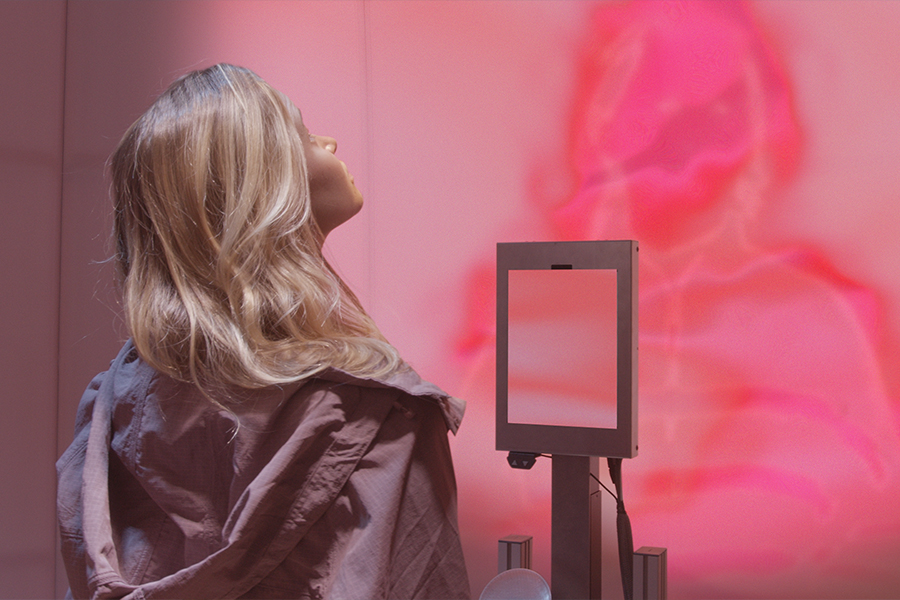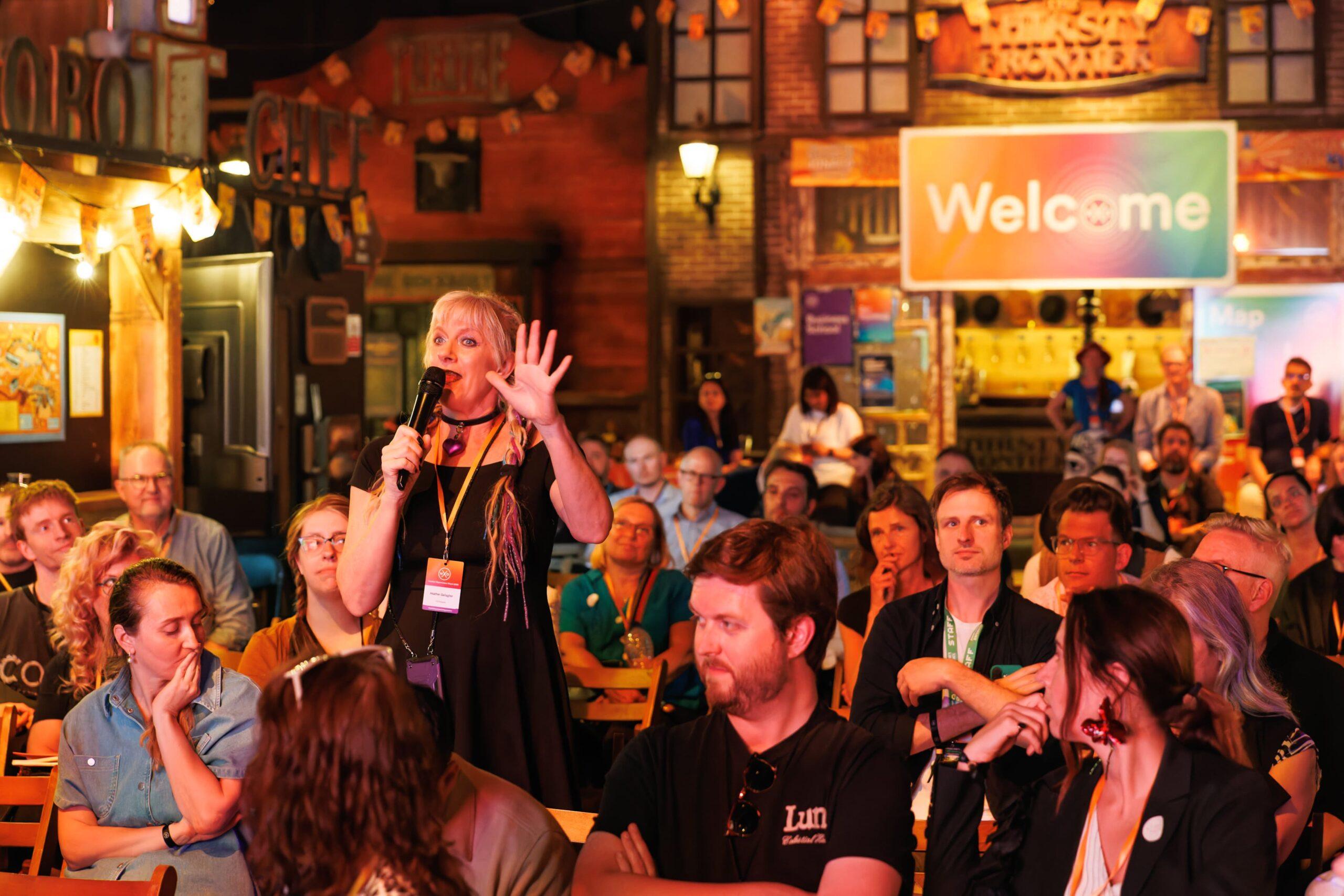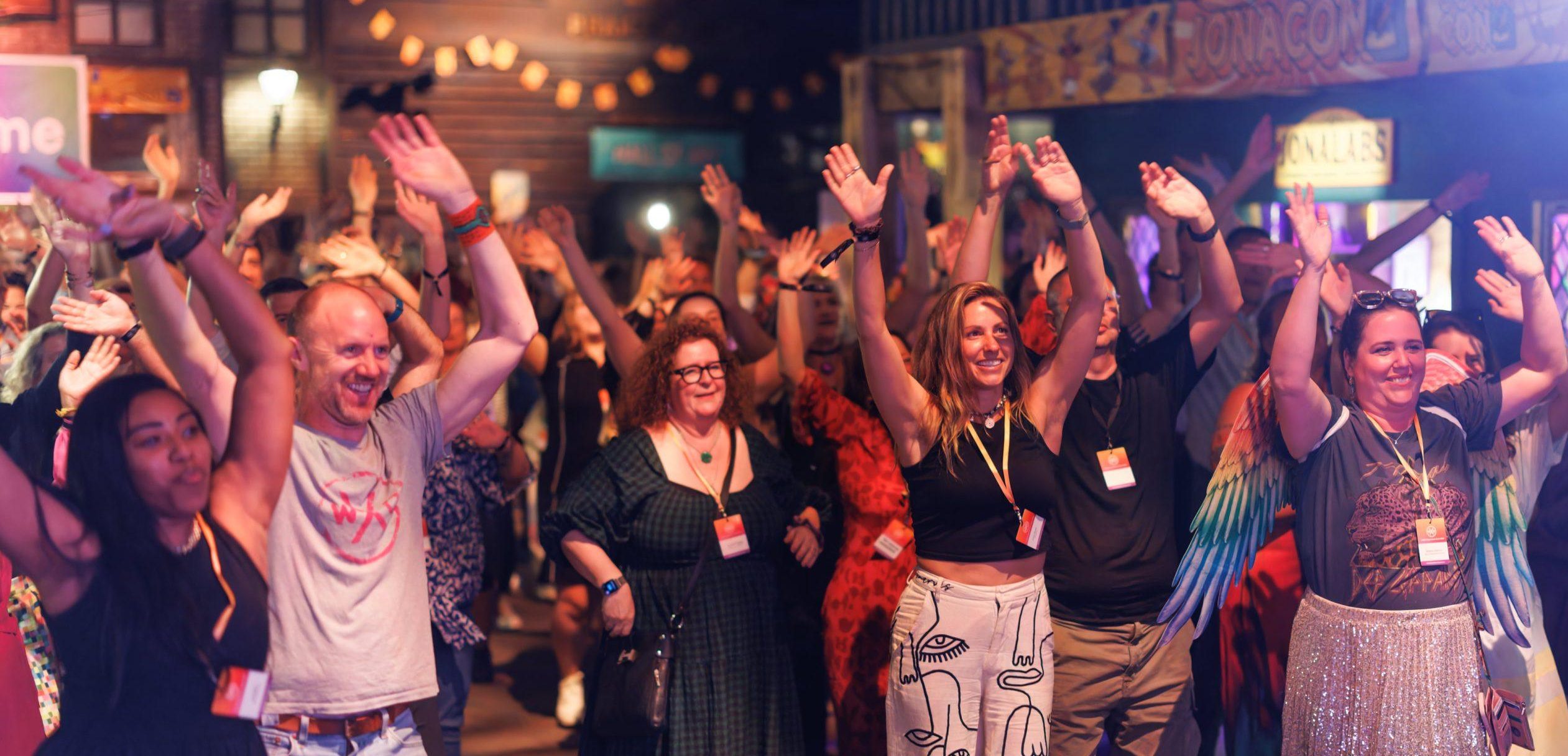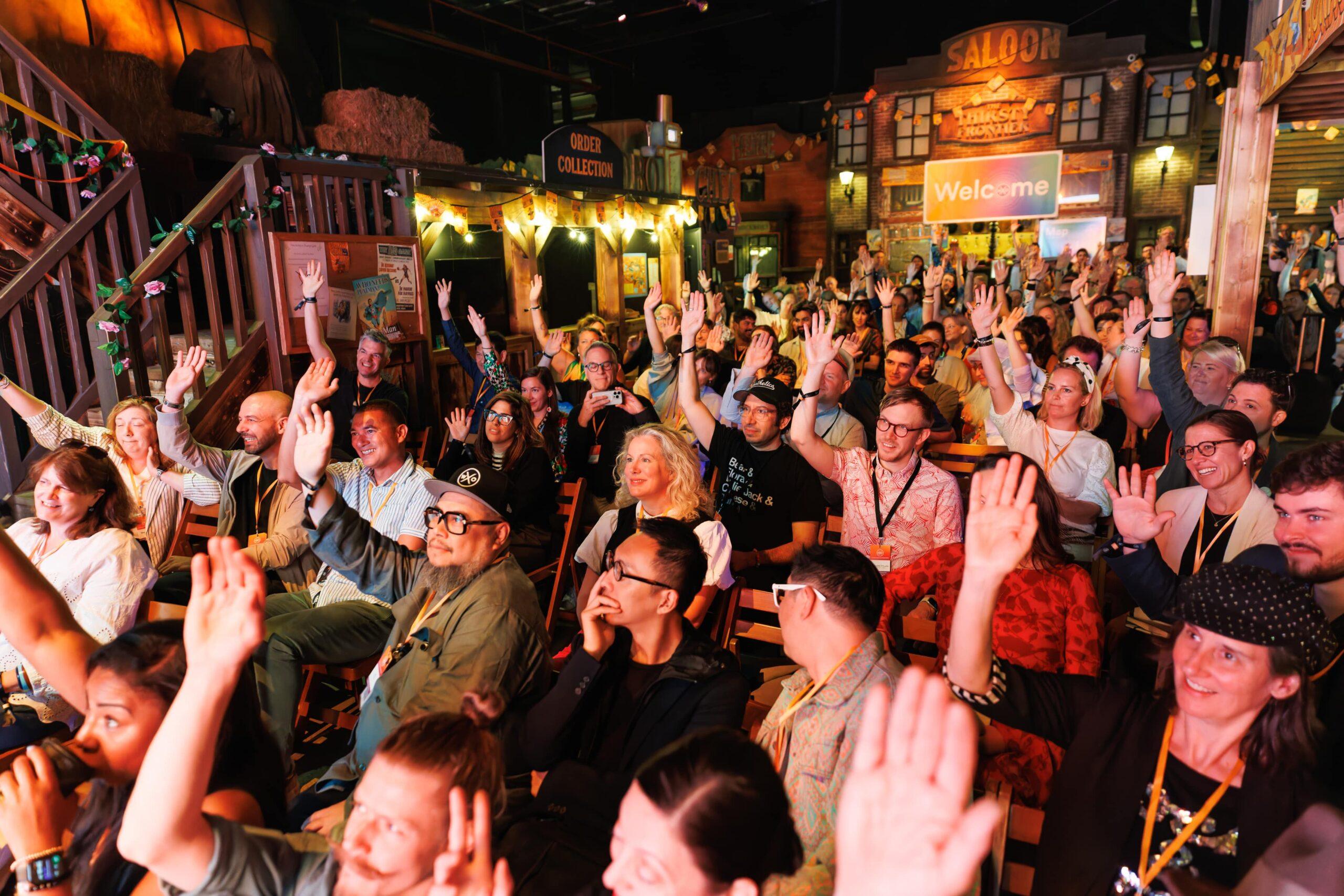Nancy Duncan helps brands, agencies, and start-ups achieve their goals through world-first special projects and experiences. She has delivered over 100 creative pitches with an 80% win ratio, leading the strategy, ideation, and creative direction of interactive experiences, digital installations, product launches, brand activations, and large-scale public events.
Here she explains how AI is already transforming the Experience Economy – and wonders how this emerging technology might be used in the not-so-distant future.
AI is transforming the Experience Economy, enhancing creativity and streamlining operations. Its impacts are being felt far and wide, setting new standards for audience engagement and interactivity. As AI evolves, exciting possibilities lie ahead for the future. However, it’s also fraught with controversy around privacy, ethics and future job security.
I have an optimistic outlook that AI is going to improve the Experience Economy and should be viewed as a tool for positive impact. Here are some of the ways AI is enhancing experiences today and tomorrow…
Today: Enhancing Efficiency and Engagement
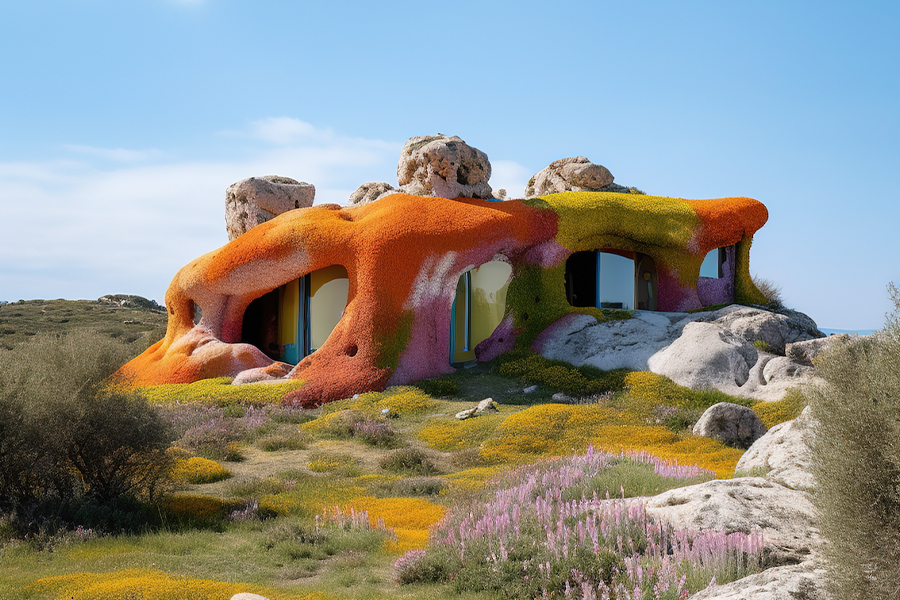
1. Personalised Experiences
AI is being used to tailor experiences to the preferences and behaviours of audiences. Through data analysis, AI can predict what audiences might enjoy and offer customised recommendations, whether it’s sessions, performances, or networking opportunities.
Personalising experiences creates more impact and ensures greater engagement.
2. Operational Automation
Operational aspects of experiences, such as registration, ticketing, and scheduling, are being automated by AI, reducing workloads and minimising errors. And AI-driven instant translation services are enabling real-time multilingual communication, making brand experiences more accessible to global audiences.
These automations are optimising the attendee experience while reducing operating costs.
3. Enhanced Interaction
AI is also transforming attendee interaction through advanced features like facial recognition for fast and secure event access, AI-powered networking apps are matching attendees with similar interests to foster collaboration.
AI is starting to help create fluid brand experiences across digital and physical spaces, creating truly “phygital” experiences whether that interaction is online or in-person.
4. Creative Assistance
AI is already being used for narrative development, assisting in brainstorming sessions, crafting copy, and creating conceptual renders.
Thanks to AI for assisting me in writing this piece! 😉
Tomorrow: Pushing Creative and Technological Boundaries
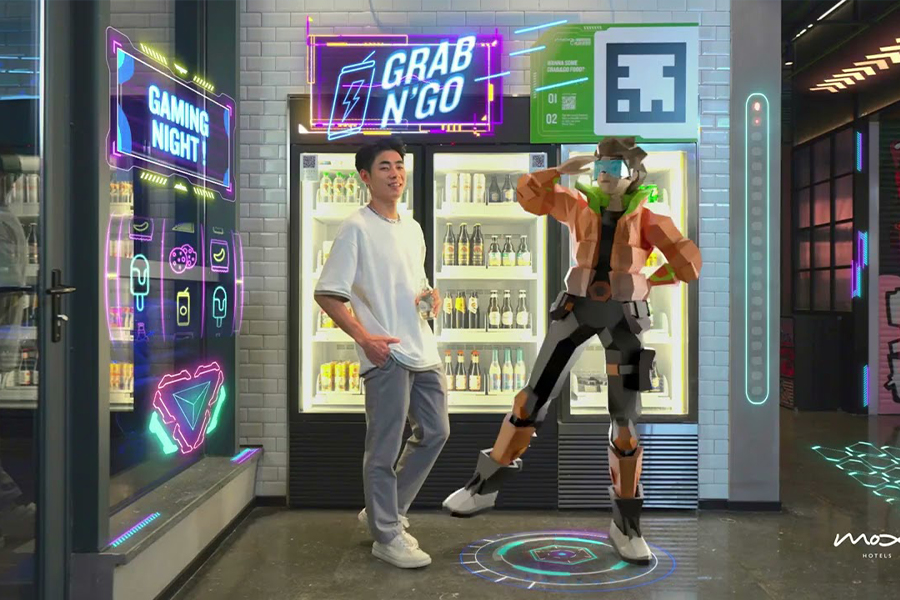
1. Immersive Realities
The integration of AI with immersive technology such as Virtual Reality (VR) and Augmented Reality (AR) will create even more immersive experiences. AI will personalise these experiences by adapting the virtual environment in real-time based on audience interaction. For example, AI could dynamically alter a VR concert experience based on the user’s reactions.
Imagine historical sites coming to life through location-based immersive realities bringing the past into the present…
2. Enhanced Analytics And Measurement
AI will offer more sophisticated tools for measuring success, providing real-time analytics on engagement and sentiment. Advanced AI could even read attendees’ emotions and engagement levels, allowing brands to adjust event elements in real-time to improve the experience.
Imagine brands being able to understand the ROI of experiences through attendees’ emotional responses…
3. Real-Time Content Adaptation
AI will enable content to be adapted in real-time based on audience reactions. For example, speakers or performers could receive real-time feedback through AI systems that analyse audience engagement levels, allowing them to adjust their delivery or content on the spot to better suit the mood and preferences of the audience.
Imagine creating experiences where the content is co-created by the audience’s mood and preferences…
Is AI The Future Of The Experience Economy?
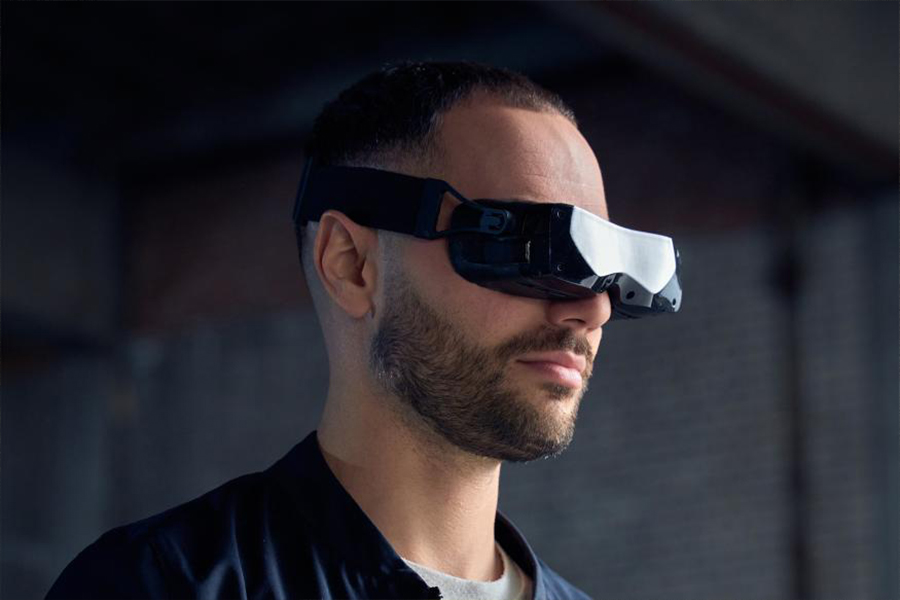
The future of the Experience Economy is as exciting as any field with the potential of AI. As AI continues to evolve, it promises to bring more sophisticated tools into the industry, enhancing every aspect from planning and execution to attendee engagement.
However, the true art of creating memorable and impactful experiences will always rely on the perfect blend of AI as a tool with the irreplaceable human touch that brings creativity and emotions to life.
The WXO Take-Out
Next time you’re designing an experience, ask yourself the following questions:
- How might you – or are you already – use AI to enhance efficiency and engagement?
- What emerging case studies in AI might inspire how you use it tomorrow to enhance creativity?
- How might AI and human creativity develop alongside each other?
To get more insights from experts in the Experience Economy, attend digital and IRL events, and access our exclusive online community, apply to join the WXO now.

